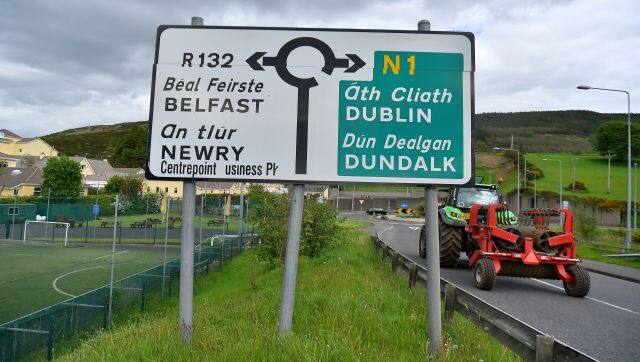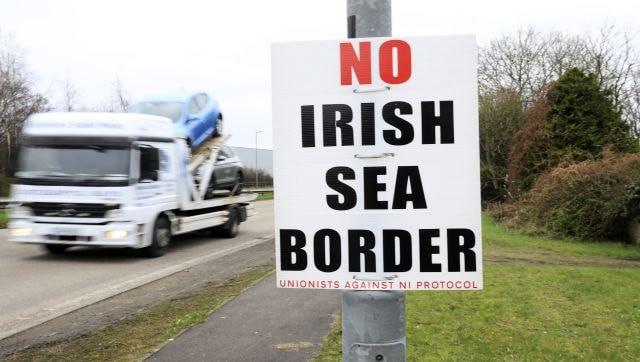'Badhaai Do' movie,1,'The Kerala Story',2,'Zeeshan Maggie Point',1,"kerala story",1,@preganest,1,000 Reward,1,1.5K OLED Display,1,10 Million Instagram Followers,1,100W SuperVOOC Charging,1,120W charging,1,50MP Camera,1,67W Fast Charging,1,8,2,90s actress,1,AAP,1,Access to Diabetes Care,1,accident,3,Accountability,1,Actor Salman Khan,1,Actress Priyanka Chopra,1,Adobe Firefly,1,aerospace innovation,1,AI Chatbot,1,AI Features,1,AI image generators,1,AI Technology,1,Air Gestures,1,Air India,1,Air Quality,1,aircraft manufacturing,1,Al Nahyan royal family,1,Alia Bhatt,3,All-Round Performance,1,Allegation Credibility,1,alternatives,1,Amazon,2,Amazon Prime,1,ambassador recall,1,Ameesha Patel,1,Amit Shah,4,Android 14,3,Android 15,1,Android Features,1,Android Security Patch,1,Animal Movie,1,Ankita Lokhande,1,Annadhivas,1,Anthony Hopkins,1,anti-incumbency,1,anti-Muslim bias,1,Anurag Singh Thakur,1,Anushka Sharma,1,App Store,1,App-Based Taxis,1,Apple,1,Apple Supply Chain,1,Arakan Army,1,Arbaaz Khan,1,Arjun Tendulkar,1,Arshia Goswami,1,Article,4,Artistry,1,Arvind Kejriwal,1,ASUS Zenfone 11 Ultra,1,Atishi Marlena,1,Atlee Kumar,1,availability,2,aviation,1,aviation sector,1,Award Show Glamour,1,Ayesha Khan,1,Ayodhya,3,Ayodhya Ram Temple,1,Ayodhya Temple,2,Ayodhya Temple Trust,1,Ayodhya Temples.,1,Ayodhya Updates.,1,Ayushmann Khurrana,1,Bachelor Stars,1,back pain,1,Bageshwar Dham,1,Bail,1,bank holiday schedule,1,bank offers,1,Banking Sector,1,Barbed wire,1,Battery,1,BCCI,1,Beer Chugging,1,Ben Stokes,1,Bengal Elections,1,Bengaluru,1,Bengaluru.,1,BH registration,1,BH-Series,1,Bharat Jodo Nyay Yatra,1,Bhopal,3,Bhupesh Baghel,1,BIETC,1,Bigg Boss 17,1,Bigg Boss OTT,1,Bigg Boss OTT 2,1,Bihar politics,1,Bike Rider Agastya Chauhan,1,Biocon Ltd,1,birthday,2,BJP,8,Blockbuster,1,Bobby Deol,1,Bobby Deol Viral Video,1,bodyguard missbehave,1,BOE screen.,1,Boeing,2,Bold Fashion Choices,1,Bollywood,5,Bollywood Actor,1,Bollywood Actor MP,1,Bollywood Couple,1,Bollywood Diwali,1,Bollywood Journey,1,Bollywood Stars,1,Bollywood Success Party,1,border tensions,1,borrowing,1,Box Office Collection,1,Box Office Triumph,1,Boxing Champion Mary Kom,1,Brampton,1,bribery allegations,1,BS Yediyurappa,2,Budget Phones,1,budget.,1,Bundelkhand,1,Business,25,BY Vijayendra,1,CAA,1,CAA eligibility,1,CAA Implementation,1,CAIT,1,Camera,1,camera details,1,Camera Enhancements,1,Camera Phones,1,camera setup,2,Cameras,1,Canara Bank Fraud,1,candidate selection,1,Canva Magic Media,1,Career,1,Career Growth,1,Career Setbacks,1,cars,1,Cash Donations,1,Cash for Query Case,1,CBRI,1,CCTV Footage,2,Celebrations,1,Celebrity Celebration.,1,Celebrity Celebrations,1,Celebrity Controversy,1,Celebrity Divorce,1,Celebrity Diwali,1,Celebrity Fashion,1,Celebrity Milestones,1,Celebrity News,1,Celebrity Photo.,1,Celebrity Privacy,1,Central Agencies,1,Ceremonial Preparations,1,Chandrakant Sompura,1,charity match,1,Chhatarpur,1,Chhattisgarh Election,1,childhood memories,1,China,1,China Launch,1,Chinese Stocks,1,Chirag Paswan,1,Christians,1,Christmas Date Night,1,Citizenship Amendment Act,3,Civilian Transition,1,CM Shivraj Singh Chouhan,6,codecanyon,3,Cold Wave,1,Color Options,1,Comedian,1,Comparison,1,Compassionate Release,1,conflict,1,Congress,5,Congress MLA Omkar Singh Markam,1,Connectivity,1,Consecration Ceremony,1,constitutionality,1,Construction Engineering,1,Consumer Protection,1,Contenders,1,content regulation,1,Contraception,1,Controversial Movie,1,converting to Islam,1,Core i9-14900KS,1,Corning India,1,Counterclaims,1,couples goal,1,Court Proceedings,1,creativity,1,Cricket,3,cricket comeback,1,cricket legends.,1,Cricket Setback,1,Cricket Trades,1,Crime news,1,Crime-solving,1,Criminal Identification.,1,Cultural Shift,1,Czech court,1,Dakota Johnson,1,Dance Tribute,1,Dance Video,1,DDR5 RAM,1,Deadlifts 60 kg,1,Deceptive Trade Practices,1,Dedication,1,Deendayal Antyodaya Rasoi Kendras,1,Deepika Padukone,2,Defamatory Posters,1,defense personnel,1,Delhi,1,Delhi airport,1,Delhi Chief Minister,1,Delhi Excise Policy,1,Delhi Fire Service,1,Delhi metro,1,Delhi Police,2,Delhi Pollution,2,Delhi Schools,1,Design,1,Design Renders,1,Desktop PCs,1,Development,1,Development Scheme,1,Devotees,2,Dhanteras,1,Dhanteras 2023,1,Dharmapuri.,1,Dharmendra,1,Dhirendra Shastri,2,Diabetes Awareness,1,Diabetes Epidemic,1,Diabetes Prevention,1,Diamond jewelry,1,Diesel Vehicles,1,Dietary Improvement,1,digital art,1,Digital Reconstruction,1,Diplomacy,1,disappearance,1,Disastrous Plastic Surgeries,1,discounts,1,District hospitals,1,Divorce,1,Diwali 2023,4,Diwali a National Holiday,1,Diwali Announcement,1,Diwali bank holidays,1,Diwali Celebration,1,Diwali deal,1,Diwali Gift,1,Diwali Moments,1,Diwali offers,1,documentation,1,Domestic Cricket,1,Donald Trump,1,Donatella Versace,1,DPR,4,drunk driving,1,Dubai woman,1,Durability.,1,early signs,1,Earnings Growth,1,Earthquake-Resistant Design,1,Edge 50 Pro,1,Education / Employment,3,Eid Party,1,Eight-Year-Old,1,Election Commission,4,Election Commission Data,1,Election Dynamics,1,Election Promises,1,election year,1,Elections 2024,2,Electoral Bonds,5,electoral process,1,electoral reform,1,electoral strategy,1,emotional moment,1,Emotional Plea,1,Enchanting Moments,1,Enforcement Directorate,1,Engagement Ceremony,1,England Cricket,1,England Squad,1,Entertainment,27,Entertainment News,4,Entertainment News.,8,Environment,1,Environmental Measures,1,Epic Games,1,Equality in Cricket,1,event,1,event management,1,Exercise,1,Expert Recommendations,1,external payments,1,extradition,1,Exynos 1480,1,Facial Recognition,1,Family Celebration,1,Family Challenges,1,Family Court.,1,Family Planning,1,Fan Frenzy,1,Fan Reactions,1,Fan Reactions.,1,Fashion,1,Fatal Crash,1,Father-Daughter Success,1,Features,4,Female Engineer Uber Driver,1,Fenty,1,Festival Tradition,1,Festive deals,1,Fighter Track,1,Film 'Kisi Ka Bhai Kisi Ki Jaan',1,Film Earnings,1,Film Trends.,1,Filmfare Awards 2023,1,Filmy Proposal,1,Finance Minister Nirmala Sitharaman,1,Financial Assistance,1,Financial Benefits,1,financial transactions,1,Fire Incidents,1,Firecrackers,1,Fireworks,1,first water metro,1,fiscal deficit,1,Fitness Tips,1,Flipkart,1,foldable phone,2,Food,2,Foreign Policy,1,Frantic Search.,1,freak accident,1,free earbuds,1,free food grain scheme,1,Funtouch OS 14,1,Future Gaming,1,Gadar 2 Success,1,Gajakesari Rajyoga,1,Galaxy Z Flip 6,1,Gaming,1,Gaming Industry,1,Geekbench listing,1,Geeta Colony Murder,1,Gemini,2,Gemini AI,1,Gender Equality,1,geopolitical crisis.,1,Geopolitics,1,Ghazipur market,1,Global Cinema,1,Global Health,1,global investments,1,global launch,1,Global Market Outlook.,1,Goa,1,Gold savings,1,Goldman Sachs,1,Google Assistant,1,Google Bard,1,Google Gemini,1,Google I/O 2024,1,Google Services,1,GOP Nomination,1,Gorilla Glass Manufacturing,1,governance efficiency,1,Government,1,Government action,1,government employees,1,Government spending,1,Govinda,1,Graphics,1,Griha Lakshmi Yojana,1,Hadaka Matsuri,1,Hailstorm Warning,1,Hakuto-R,1,Halka Bhoa Outcry,1,Hanuman Symbolism,1,Hard Work,1,Hardik Pandya,1,Health Crisis,1,Health Insurance Deductions,1,health sector,1,Healthcare Awareness.,1,Healthy Lifestyle,1,Hegadadevana Kote,1,Heritage Architecture,1,Hero,1,high-level committee,1,Hilarious Act,1,Hindu Heritage.,1,Hinduism,1,Historic Revival,1,Holiday Love Stories,1,Hollywood Icons,1,Home Loan Benefits,1,Homecoming,1,Honeymoon Change,1,Hong Kong,1,House Fire,1,How-to Guide,1,Hrithik Roshan,1,Hyderabad,2,iconic career.,1,IIFA 2023,1,IIT Indore,1,Immigration Policy,1,in-app purchases,1,Inauguration,1,Income Tax Relief,1,India,11,INDIA Bloc,1,India news,6163,India News https://news24online.com/category/india/,432,India News https://www.news9live.com/india/,2,India Politics,1,India Test Series,1,India's Richest,1,Indian Actress,1,Indian festivals,1,Indian Government,1,Indian Lottery Industry,1,Indian media,1,Indian Muslim,1,Indian news,33,Indian Ocean Region,1,Indian politics,5,Indian Premier League,1,Indian road tax,1,Indian Shares,1,Indian-Origin,1,Indore,3,Indore court,1,Infrastructure Projects,1,Innovative Fashion,1,Instagram,1,Instagram Celebration,1,instragram,1,Insulin Discovery,1,Intel,1,Interim Budget Presentation,1,international relations,1,investigation,3,Investment Opportunities,1,IPL,1,IPL 2023,2,iQOO Neo 9 Pro,2,Iran,1,Isha Malviya,1,ISRO Technologies,1,IT,1,IT Act violations,1,Jagadguru Rambhadracharya,1,Jagadish Shettar,1,Jagannath Puri Rath Yatra,1,Jairam Ramesh,1,Jammu and Kashmir,1,Japan,1,Jason Roy,1,Jenna Rizzo,1,Jet Airways Founder,1,Jewelry discounts,1,Jiah Khan,1,Job,1,Joy Awards 2024,1,Judicial Response,1,Justice Minister Pavel Blazek,1,Kamal Nath,1,Kamasutra,1,Kanya Vivah-Nikah Yojana,1,Karan Kundra,1,Kareena Kapoor,1,Karnataka,2,Karnataka Assembly Election,1,Karnataka Politics,1,Katrina Kaif,1,Kevin Costner,1,Khalistani terrorist,1,Kiara Advani,1,Kidney failure,1,kidney health,1,kidney issues,1,kidney symptoms,1,Kiran Mazumdar-Shaw,1,Kissing Photos,1,KL Rahul.,1,Kochi,1,Konomiya Shrine,1,Krishna Priya,1,Krishna Shila,1,Kupwara,1,Latest news,1,launch date,2,Launch Event,1,leak,2,leaked design,1,Leaked Video,1,leaks,1,legal battle.,2,legal inquiry,1,Legal Scrutiny,1,Legal Updates.,1,Lekhpal Recruitment,1,Life Changing tips,1,Lifestyle,13,Lifstyle,1,Limitations,1,Liquor Scam,1,Localized iPhone Production,1,Lock Screen,1,Lok Janshakti Party,1,Lok Sabha,1,Lok Sabha elections,1,Lok Sabha Ethics Committee,1,loss of cat,1,Love Jihad,1,Love Story,1,Lucknow,1,Lucky Zodiac Signs,1,Luxury Car,1,Maa Kali',1,Madhya Pradesh,27,Mahakal lok,1,Mahakaleshwar temple,1,Maharashtra housing project,1,Mahatma Gandhi,1,Mahtari Vandan Yojana,1,Mahua Moitra,1,main,19,Make in India,2,Malaysia Airlines,1,Maldives,1,Mamata Banerjee,1,Man naked and garlanded with shoes,1,Manchester City FC,1,Manisha Rani,2,Mantralya,1,Marble Idol,1,Marital Discord,1,Mark Wahlberg,1,Market Trends,1,Marriage Announcement,1,Marriage Dispute,1,Mata Sharda Temple,1,Material Happiness,1,MediaTek Dimensity 7050,1,medical attention.,1,Megha Engineering,1,Men wearing skirt,1,Menstrual Hygiene Day 2023,1,Mercedes CLA 200,1,Meteorological Alert.,1,Meteorological Department,1,Metro Station,1,Mexican Giant Turtle,1,MH370,1,MI Cape Town,1,Microsoft Copilot,1,Mid-range Phones,1,mid-range smartphones,1,Milind Deora,1,Military to Civilian,1,Ministry of I&B,1,Minority Rights,1,Mir,1,missile strikes,1,Missing Child,1,Missing Posters Protest,1,MIT,1,Mizoram,1,Mizoram Chief Minister,1,MK Stalin,1,mob justice,1,Mobile Devices,1,mobile phone,1,Modern Science,1,modular kitchens,1,Money Laundering,1,Monkey Visit,1,Moon,1,Motherboard Compatibility,1,Motorola,1,Movie Premiere,1,MP Election 2023,1,MP Weather Update,2,multi-state travel,1,Multi-Vehicle Collision,1,Multitasking,1,Mumbai,2,Mumbai Party,1,Munawwar Farooqui,1,Murder Investigation,1,Muslims,1,Muttiah Muralitharan,1,Myanmar soldiers,1,Narendra Modi,4,Narendra Modi.,1,Naresh Goyal,1,Narzo 70 Pro 5G,1,National,162,National Paper Airplane Day 2023,1,national security,2,Navlakha,1,NDA alliance,1,Neelam Kothari,1,Netflix Romantic Movies,1,Netherlands,1,New Education Policy,1,New Hampshire Primary,1,Newlands,1,News,1,Nicholas Sparks Adaptation,1,Nick Jonas,1,NightCafe,1,Nikhil Gupta,1,Nikki Haley,1,Nitish Kumar,1,Non-Sporting Obstacle.,1,North India,1,Northeastern Council.,1,Northeastern University,1,nostalgic clash,1,Nothing Phone (1),1,Nothing Phone (2),1,Notice.,1,obscene content,1,ocean trench,1,ODI Wicket,1,Ola,1,On-Screen Parents,1,One Nation One Election,2,One Nation One Number Plate,1,One World One Family Cup,1,OnePlus,1,OnePlus 11 5G,1,OnePlus 12R,2,OnePlus Ace 3V,1,OnePlus Nord 4,1,Online Community,1,Online Security,1,Online Shopping,1,Ontario,1,Ontario Fire Marshal,1,Opposition,3,opposition members,1,Opposition Unity,1,Orange Alert,1,Osho,1,OTT platforms,1,OTT Romantic Films,1,OxygenOS Update,1,P Pitchi Reddy,1,Paarl Royals,1,Pakistan,1,Pakistani Actress,1,palace,1,Paramilitary Forces,1,Parental Gratitude,1,Parenthood,1,Parsis,1,Peel Police,1,Pennsylvania,1,persecution,1,Personal Life Controversies,1,pet parrots,1,Phot.AI,1,pilot theory,1,Pixel 8a,1,plants mango saplings,1,Player Retention,1,PM Awas Yojana.,1,PM Modi,2,PM Narendra Modi,3,PMAY-Urban,1,POCSO Act,1,police intervention,1,Political Alliances.,1,political analysis,1,Political Donations,2,Political Funding,4,Political Maneuvering.,1,Political Motives,1,Political Setback,1,politics,17,politics of lies,1,Pollution Crisis,1,Pradeep Mishra,1,Pran Pratishtha,2,Pran-Prathistha,1,Praveen Kumar,1,Premium Mid-Range,1,Premium Phones,1,President Muizzu,1,Presidential Race Developments.,1,price,4,pricing,1,Privacy,1,Privacy Breach,1,private companies,1,private jets,1,Priyanka Chopra,1,Processor,1,Profession,1,Prosperity,1,PTI – The Siasat Daily,3,Quick-Change Style,1,Rachit Agarwal,1,Rahul Gandhi,1,Rain Alert,1,Ram Lalla,2,Ram Lalla Idol,1,Ram Nath Kovind,1,Ram Temple,2,Ramayana,1,Ramlala Consecration,1,Ramoji Film City,1,Ranbir Kapoor,2,Rashid rover,1,Raynagar Housing Society,1,Reality TV,1,Realme,1,Realme 12 Pro,1,Realme GT 5 Pro,1,Realme Narzo N53,1,record-breaking century,1,Regional Holidays,1,regional stability,2,regional variations,1,relationships,1,Religious,1,Religious Freedom,1,Religious Significance,1,renewable energy sector,1,repatriation,1,Rescue Operations,1,Reserve Bank of India,1,Resignation Timing,1,Reunion,1,Revival Efforts,1,rib pain,1,Ritual Modifications.,1,Rituals,1,road safety,1,Romance Movies,1,Romantic Classics,1,Romantic Moments,1,Romantic Photos,1,Royal deaths,1,Rs 1000 Crore Investment,1,Rs 50,1,Rs 70 lakh,1,Rumors,1,Russia Ukraine ongoing conflict,1,Ryan Rickelton.,1,Sachin Tendulkar,1,Sadar Bazaar,1,Safety Measures.,1,safety protocols,1,Sagar,1,Sagittarius,1,Sai Pallavi,1,salman khan,5,Samsung,1,Samsung Galaxy A55,2,Sana Javed,1,Sana Raees Khan,1,Sanatan Dharma,1,Sanctum Sanctorum,1,Sania Mirza,1,Santiago Martin,2,Sara Tendulkar,1,Sardar Vallabhbhai Patel Park,1,Saree Look,1,Saryu Water,1,School Closure,1,Sculpture,1,search efforts,1,Seat-sharing Dispute,1,Section 80C Limit,1,Security,1,security meeting,1,Severe Cold Wave,1,Sex Education,1,Sexual Assault Allegations,1,Sexual Health,1,Shah Rukh Khan,1,Shah Rukh Khan's Airport Video goes viral,1,Shalini's Unconventional Divorce Photoshoot,1,Sheikh Mohamed bin Zayed Al Nahyan,1,Shiv Sena,1,Shoaib Bashir,1,Shoaib Malik,1,Shri Ram Mandir Ayodhya Prasad,1,Shubam Gill,1,Shubham Gill,1,Shura Khan,1,Sidharth Malhotra.,1,silver jubilee event,1,Simon Hardy,1,simultaneous polls,1,Sir Frederick Banting,1,Six-month-old Infant Dies,1,Sleep Health,1,smartphone,4,Smartphone Cost Reduction,1,Smartphone Launch,2,Smartphone Leaks,1,Smartphone Photography,1,smartphone specifications,1,Snapdragon 6 Gen 1,1,Snapdragon 7+ Gen 3,1,Snapdragon 8 Gen 2,1,Snapdragon 8 Gen 3,3,Snapdragon processor,1,Snapdragon processor.,1,Social Dynamics,1,social media,3,Social Media Appeal,1,Social Media Backlash,1,Social Media Buzz.,1,Social Media Reactions,1,Social Media Sensation,1,Social Media Viral,1,Societal Taboos,1,Solapur,1,Sooraj Pancholi,1,South Actresses,1,South Africa,1,South Indian Actress,1,South Indian Cinema,1,South Indian Comedian,1,SpaceX.,1,specifications,8,Specs,2,Spending husband's money,1,Spiritual Events.,1,Spiritual Insights,1,Sports,21,Spotify,1,Star-Studded Celebration,1,State Bank of India,1,state elections,1,STEM,1,stomach pain,1,storage options,1,Strained Ties.,1,streaming platforms,1,Structural Growth,1,Structural Integrity,1,subsidies,1,Success Story,1,Sukanya Programme,1,Summer Body,1,Summer Season,1,Sunny Deol Controversy,1,Sunny Deol Neglect Allegations,1,Supreme Court,4,Sushant Singh Rajput,1,Sushmita Sen,1,Suspicious Circumstances,1,Swag.,1,Swara Bhaskar,1,System Stability,1,T20,1,T20 World Cup,1,Tabu,1,Tahira Kashyap,1,Tamil Nadu,1,Tamil Nadu Facility,1,Tarek Fatah,1,target seats,1,Taurus,1,tax collection,1,taxi accident,1,Taxpayer Expectations,1,Tech,23,tech industry,1,Tech News,17,Technology,1,Technology Conference,1,Tejasswi Prakash,1,Temperature Fluctuations,1,Temple Construction.,1,Temples,1,Tennis,1,Tensions,1,Theater Chaos,1,Thomas Kaber,1,Thoppur Ghat,1,Tiger 3,2,Tilak Nagar,1,timing,1,Timing of FIR,1,Tips,1,Top jewelers.,1,Toronto Police,1,Torrential Rain.,1,Tragedy,1,tragic incident.,1,transaction fees,1,Transparency,2,Transport Department,1,Trending,4,Trinamool Congress,2,Trump-Biden Rematch,1,tweet,1,UAE,1,Uber,1,Ujjain,1,Ukraine Defence Ministry,1,Unconventional Style,1,Union Budget 2024-25,1,Union Home Minister,1,University of Glasgow,1,Upcoming Projects.,1,Update,1,Upgrades,1,urban housing,1,Urfi Javed,1,US,1,US Concerns,1,US murder plot,1,US Presidential Polls 2024,1,US-Canada Border,1,US-India relations,1,US-India Visa,1,Use Cases,1,Uttar Pradesh,2,Vaastu Shanti,1,Varanasi,1,Varushka Khurrana,1,vehicle registration.,1,Vicky Jain,1,Vicky Kaushal,1,video footage,1,video viral,2,Viral Content,1,Viral Fashion Video,1,Viral Moment,1,Viral Moments.,1,Viral news,1,Viral Sensation,1,Viral Sexy Video,2,viral video,4,Virat Kohli,1,Virat Kohli and Gautam Gambhir,2,Visa Issue,1,Vistex CEO,1,Vivo V23,1,Vivo V30e,1,Vivo X Fold 3,1,Water crisis,1,wealth,2,Weather Forecast,1,Weather Impact,1,Weather Update,1,Wedding Anniversary,1,Wedding Bliss,1,Weight Loss,1,WiFi,1,Wildlife,1,Winter Break Extension,1,Wired Food Combinations,1,Women Empowerment,1,Women's Participation,1,World Diabetes Day,1,World News,2211,youth,1,Youth Inspiration.,1,youtuber,1,अजब गजब,81,खेल,6,जॉब अलर्ट,24,देश विदेश,217,मध्य प्रदेश,414,राजनीति,199,राशिफल,11,व्यापार,9,



